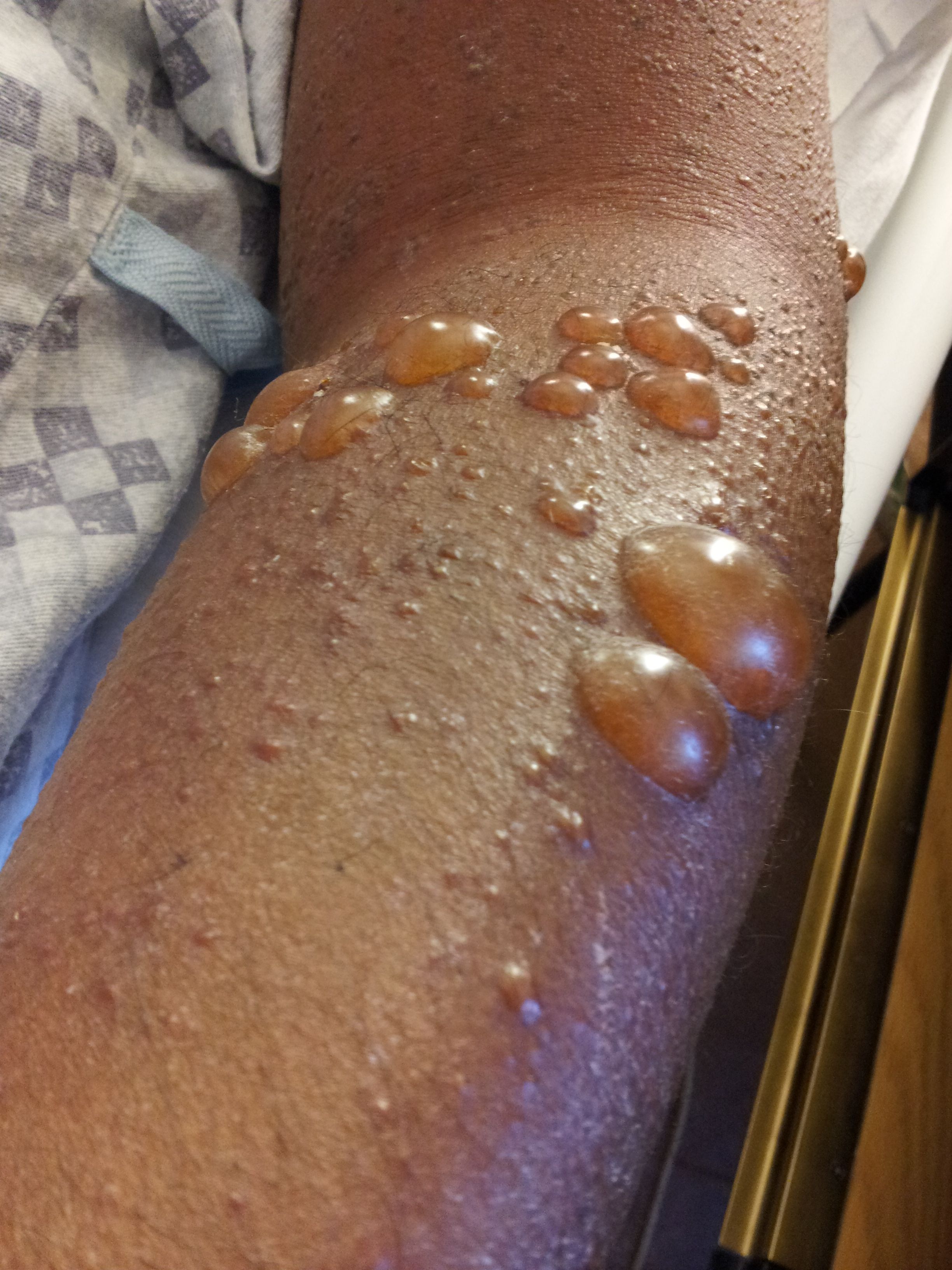- Acne
- Actinic Keratosis
- Aesthetics
- Alopecia
- Atopic Dermatitis
- Buy-and-Bill
- COVID-19
- Case-Based Roundtable
- Chronic Hand Eczema
- Chronic Spontaneous Urticaria
- Drug Watch
- Eczema
- General Dermatology
- Hidradenitis Suppurativa
- Melasma
- NP and PA
- Pediatric Dermatology
- Pigmentary Disorders
- Practice Management
- Precision Medicine and Biologics
- Prurigo Nodularis
- Psoriasis
- Psoriatic Arthritis
- Rare Disease
- Rosacea
- Skin Cancer
- Vitiligo
- Wound Care
Article
Bullous Pemphigoid May Exacerbate, Onset Following COVID-19 Vaccine
Author(s):
Some patients with the condition may experience exacerbation or new onset.
Though rare, some patients with bullous pemphigoid may experience dramatic exacerbation or new onset of disease following COVID-19 vaccination.
Creative Endeavors/AdobeStock

In a recent single-center retrospective study,1 researchers sought to investigate the postvaccine onset of bullous pemphigoid, and whether the condition is preferentially observed in dipeptidyl peptidase-4 inhibitor-associated bullous pemphigoid (DPP-4i-BP). They also set out to determine whether severe immune reconstitution inflammatory syndrome (IRIS) outcomes could be associated with, or predicted by, cytokine profiles.
In order todetermine the frequency of bullous pemphigoid flares or onset post-vaccination, researchers gathered data from patients with bullous pemphigoid who visited their hospital between January 2021 and July 2022.
Patients were included in the study if they had received at least their first dose of either the Pfizer BNT162b2 or Moderna mRNA-1273 vaccines. Prospective participants were required to be at least 20 years of age and meet diagnostic criteria for bullous pemphigoid.
Researchers defined disease deterioration and new disease onset as dramatic worsening requiring more intensive treatment within 60 days after a patient received their first, second, or third vaccination dose. In addition to demographic data, researchers also gathered disease-specific information from all participants, including serum anti-BP180 Ab levels at inclusion and dose (in mg) of prednisone at inclusion.
Around 4 or more weeks after receiving their vaccine dose, participants (n=63) completed a survey through a medical interview format. However, 17 participants did not fully complete the study, leaving 46 participants remaining.
Of these, researchers analyzed whether participants’ disease was DPP-4i-BP (n=11) or non-DPP-4i-BP (n=35). Of 41 vaccinated participants who had bullous pemphigoid, 8 participants’ disease new-onset or deterioration took place following vaccination.
“Our observation suggests that COVID-19 vaccine-induced BP [bullous pemphigoid] occurred more frequently in DPP-4i-BP than in ‘classic’ BP,” study authors wrote. “None of these eight patients developed exacerbations within 3 months before vaccination and none temporarily stopped or reduced the dose of their immunosuppressives before vaccination. Therefore, COVID-19 vaccine-induced BP was more frequently associated with DPP-4i-BP than with ‘classic’ BP.”
Additionally, researchers found that cytokines G-CSF and IL-10 most contributed to severe IRIS infections following COVID-19 vaccination.
“Given the rarity of these adverse events in patients with ‘classic’ BP, we suggest that the COVID-19 vaccine may trigger a flare of pre-existing DPP-4i-BP or new-onset DPP-4i-BP in individuals with either subclinical BP or immunological deposition. When a dermatologist encounters patients with new-onset or worsening BP after COVID-19 vaccination, they should ask if they have been taking a DPP-4i,” study authors wrote. “Given that the vaccine may induce autoimmune responses in genetically predisposed individuals by stimulating subclinical autoreactivity against hemidesmosomal components, BP patients, especially those with DPP-4i-BP, should be preferably vaccinated during disease remission, not to induce IRIS. Because of the increased risk of postvaccination DPP-4i BP, patients receiving DPP-4i would require close follow-up after COVID-19 vaccination and during COVID-19 infection.”
Reference
- Sunada M, Sugiyama S, Nakahara Y, et al. Dramatic deterioration or new‐onset dipeptidyl peptidase‐4 inhibitor‐associated bullous pemphigoid after Covid‐19 vaccination: A possible manifestation of immune reconstitution inflammatory syndrome. JEADV Clin Pract. 2023. doi:10.1002/jvc2.150
Newsletter
Like what you’re reading? Subscribe to Dermatology Times for weekly updates on therapies, innovations, and real-world practice tips.











